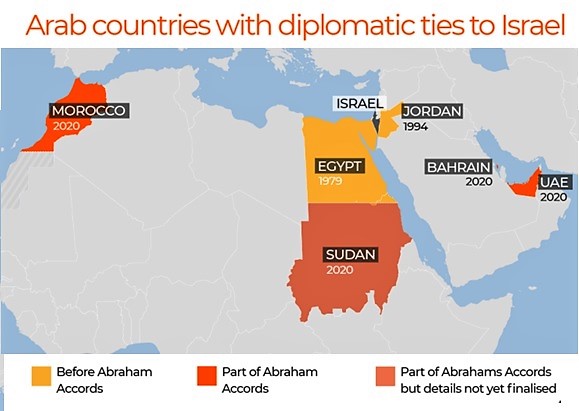7667766266
enquiry@shankarias.in
September 2023 marks an important milestone for West Asia and North Africa - 3 years since the signing of the Abraham Accords.

To know more about Abraham Accords 2020, click here
References